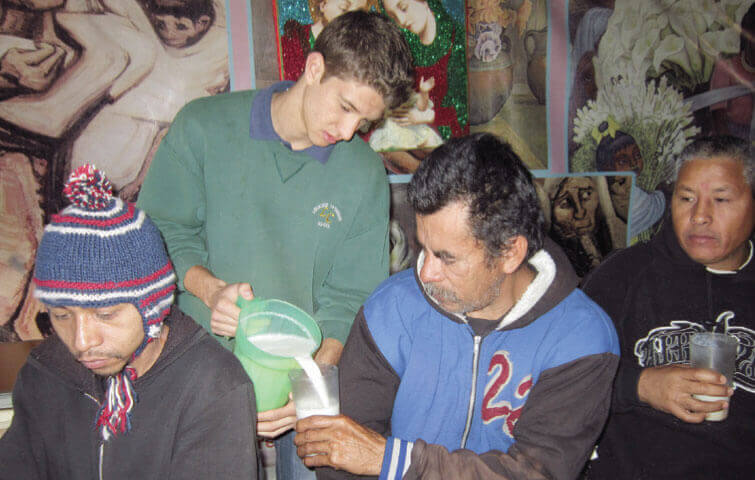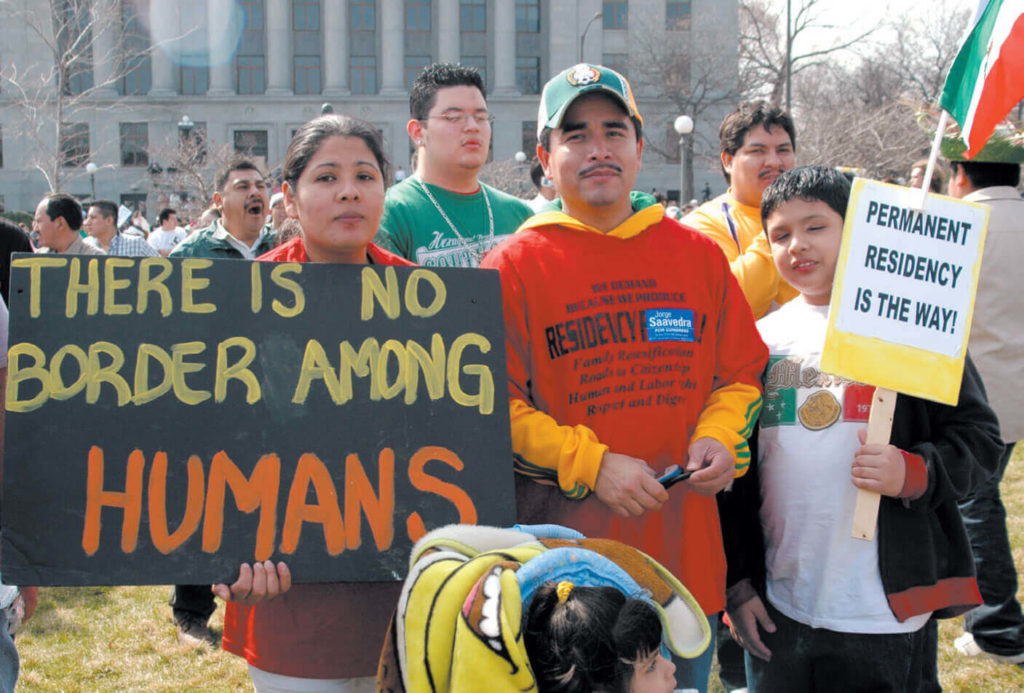
Kino Border Initiative, Nogales, Mexico 
In Sunday’s gospel Jesus and his disciples talk for the last time before Jesus sets off for Jerusalem. After all these disciples have witnessed him do and say, Jesus might expect deeper understanding of his message and mission. Instead Jesus’ all-too-human followers have argued about who is greatest as they walk along.
Jesus, the teacher, sits the twelve down for an intense review. He demonstrates who is greatest by taking a child in his arms and insisting, “Whoever welcomes one such child in my name welcomes me.” In this statement Jesus identifies with a child and calls the twelve to welcome and serve those, who like the child, are of little account.
Sunday’s gospel passage begins after this lesson. The disciple John raises a question about who can act in Jesus’ name. John sounds as if he is tattling, when he reports, “Teacher, someone is casting out demons in your name.” John admits that he and the other disciples interfered to stop the man. They reason that because the exorcist is not one of their company, he should not act in Jesus’ name.
Jesus’ response teaches his disciples not to box in his power. Jesus reasons that a person liberating another in his name cannot also speak evil of him. Jesus claims broad middle ground in this saying, “Whoever is not against us is for us.”
Such middle ground is fertile space for transformation. Often activists, liberal and conservative, reverse Jesus’ saying and eliminate middle ground. In trying to mobilize advocates for change in public policies, they insist whoever is not for us is against us. For example, not to march for more humane immigration policy is to support deportation raids and the exploitation of workers.
Middle ground is valuable space to preserve. There we explore what we have in common with others, what they have experienced, why they think the way they do. Middle ground is where people share their stories. What is the experience of a suburban stay-at-home mom, a refugee from Somalia in a foreign culture, an undocumented immigrant working a minimum-wage job at a hotel, an African American nurse who has experienced people shunning his or her touch?
Middle ground is where real people replace stereotypes and liberate each other from the demons of prejudice and unexamined certainty. Middle ground is where someone else’s lived experience can broaden and transform our own.
- What experience of middle ground becoming common ground have you had?
- What can you do to widen common ground in the Church?
In the second half of Sunday’s gospel Jesus addresses his disciples, those of his company. These sayings lambaste them with harsh hyperbole. Jesus warns his disciples, who took it upon themselves to stop the exorcist, against being stumbling blocks to “little ones,” to people who seek to become Christians and follow Jesus. Better to hang a millstone around one’s neck and drown.
Hyperbole dramatizes a point. We use exaggerations similar to those in Sunday’s gospel to express strong feelings. “I’d give my right arm for that.” “I’d rather die than live in that neighborhood.”
To understand that Jesus’ sayings about chopping off a hand or plucking out an eye are extreme does not mean we should take them less than seriously. The hyperpole challenges us to get to the root of whatever causes us to stumble or to sin. The Greek word translated either to stumble or to sin is a word familiar in English — skandalizo. Catholics today know the demoralizing power of the sexual abuse scandals.
The sayings call us to align our vision with Jesus’ own. His sayings turn the tables on his disciples, who are too busy guarding their own insider status to open their hearts to all whom Jesus loves and seeks to liberate and lift up.
In Sunday’s gospel Jesus asks us as disciples what attitudes we must change in order not to exclude others who seek entrance into God’s reign. Jesus challenges us to embody his hospitality to all and become, as he is, the revelation of God’s freeing and healing love to others. Like Christianity, every major world religion at its deepest teaches and challenges its followers to compassion.
- To what and to whom does the name Christian obligate us?
